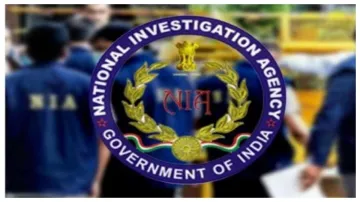National Investigation Agency (NIA) is conducting searches across seven states in connection with the Bengaluru Prison Radicalisation case. According to the information the searches are underway in as many as 17 locations.
Raids have been initiated in Bengaluru, Tamil Nadu, and other states today, targeting locations associated with suspects involved in a terror conspiracy. The operation is connected to the case involving the Bengaluru Lashkar-e-Taiba (LeT) Prison radicalisation and 'fidayeen' (suicide) attack conspiracy.
8 people charge-sheeted by NIA
Earlier on January 12, the NIA charge-sheeted eight individuals, including a life convict and two absconders, in connection with the case. Among those charged is T Naseer from Kerala's Kannur district, currently serving a life sentence in the Central Prison in Bengaluru since 2013. Junaid Ahmed, also known as JD, and Salman Khan are suspected to have fled abroad. The remaining accused have been identified as Syed Suhail Khan, Mohammed Umar, Zahid Tabrez, Syed Mudassir Pasha, and Mohammed Faisal Rabbani.
All eight accused persons have been charge-sheeted under various sections of the Indian Penal Code, the Unlawful Activities (Prevention) Act, the Explosives Substances Act and the Arms Act.
About the case
The case was originally registered by the Bengaluru City Police on July 18, 2023, following the seizure of arms, ammunition, hand grenades and walkie-talkies from the possession of seven of the accused persons. The recovery was made while the seven men were gathered in the house of one of the accused. Investigations into the case, which was taken over by the NIA in October 2023, revealed that T Naseer, who was involved in several blast cases, had come in contact with the other accused while they were all lodged in Bengaluru Prison in 2017.
While Salam was in prison in a POCSO case, the others were involved in a murder case. Naseer had managed to get them all shifted to his barracks after a careful assessment of their potential with a view to radicalising and recruiting them into the LeT. He first managed to radicalise and recruit Junaid and Salman to further the activities of the LeT; thereafter, he conspired with Junaid to radicalise and recruit the other accused. Junaid, following his release from Prison, was believed to have fled abroad after committing some more offences.
What did NIA probe claim?
According to NIA investigations, Junaid initiated the transfer of funds from abroad to his co-accused to support LeT activities both inside and outside the prison. Collaborating with Salman, Junaid orchestrated plans to supply arms, ammunition, hand grenades, and walkie-talkies to others, with intentions to execute a 'fidayeen' attack and facilitate the escape of Naseer from police custody during his court transfer.
Junaid's directives also involved stealing used police caps for the attack and conducting arson on government buses as a rehearsal. However, law enforcement authorities intervened and seized the weapons in July last year, thwarting the plot. Ongoing investigations under Section 173(8) of the Code of Criminal Procedure (CrPC) continue to unfold further details.
Bengaluru's Rameshwaram Cafe blast
The recent raids in the case occurred just two days after the Ministry of Home Affairs transferred the investigation of Bengaluru's Rameshwaram Cafe blast to the NIA. The anti-terror agency promptly initiated an investigation into the blast, re-registering the case. The explosion, which occurred on March 1 at the cafe in Bengaluru's Whitefield area during lunch hour, resulted in several injuries.
(With inputs from ANI)
ALSO READ: Bengaluru's Rameshwaram Cafe blast probe handed over to NIA
Latest India News
